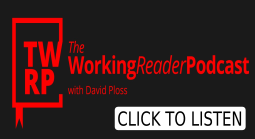Freyaverse: Neptune’s Brood by Charles Stross – Book Review [Bane of Kings]

Milo, aka Bane of Kings reviews the second book in Charles Stross’ Freyaverse, set 5,000 years after the eventsof Saturn’s Children, but can be read as a standalone. It’s a space opera novel published by Orbit Books.
“Charles Stross delivers a book with some strong world building and some great ideas, but ultimately falls short when it comes to creating a good plot, with the storyline bogged down in info-dumping. Whilst some will (and have) enjoyed this book, I can only cautiously recommend it.” ~ Bane of Kings, The Founding Fields
Krina Alizond is a metahuman in a universe where the last natural humans became extinct five thousand years ago. When her sister goes missing she embarks on a daring voyage across the star systems to find her, travelling to her last known location – the mysterious water-world of Shin-Tethys.
In a universe with no faster-than-light travel that’s a dangerous journey, made all the more perilous by the arrival of an assassin on Krina’s tail, by the ‘privateers’ chasing her sister’s life insurance policy and by growing signs that the disappearance is linked to one of the biggest financial scams in the known universe.
This is set in the same universe as Saturn’s Children, 5000 years later.
Charles Stross is an author who I’ve wanted to try out for a while now so that when I got the opportunity to read Neptune’s Brood, I leapt at the chance – and it was only after I finished reading did I realise that this book was a sequel to Saturn’s Children. However, it isn’t really a direct sequel and merely set in the same universe, taking place 5,000 years following the first book in the Freyaverse. As of such, readers can try this book out without necessarily having read Saturn’s Children – however I can imagine that most Charles Stross fans will have probably read it already.
 The concept behind this book is imaginative and creative. Krina Alizond is our main character, a metahuman in a universe where the last natural humans became extinct five thousand years ago (think the Doctor Who episodes where they visited New Earth – only without the Cat people) – and following the abduction of her sister, she sets out across the sea of stars in order to find her. This leads Krina naturally to her last known location – Shin-Tethys, a water world. However, Krina to make matters more complicated there’s not only no FTL travel, but also an assassin after Krina’s head.
The concept behind this book is imaginative and creative. Krina Alizond is our main character, a metahuman in a universe where the last natural humans became extinct five thousand years ago (think the Doctor Who episodes where they visited New Earth – only without the Cat people) – and following the abduction of her sister, she sets out across the sea of stars in order to find her. This leads Krina naturally to her last known location – Shin-Tethys, a water world. However, Krina to make matters more complicated there’s not only no FTL travel, but also an assassin after Krina’s head.
So the plot, despite sounding relatively simple, is actually fairly complex and science fiction heavy. Stross has put a lot of effort into developing the world and fans of the likes of Iain M. Banks will find familiar ground here. Stross, a heavyweight prolific author himself – manages to keep things inventive and engrossing in a way that will keep the reader wanting to find out what happens next.
The book may be relatively short, but Stross wastes little of his Wordcount (aside from info-dumping, which I’ll talk about in the next paragraph), crafting a well written tale with some great, confident prose. The world building is great as well, focusing on a universe ruled by Commerce – and creates a very interesting system here that is richly developed.
However, there are unfortunately problems with this book. It’s not perfect. Neptune’s Brood suffers when it comes to info-dumping – which is unfortunate as given Stross’s vast backlog you’d expect an author of his calibre to avoid falling into that trap. We get narrative breaks to fully explain a topic in more than one place – and as a result it slows down the pace. It was a slow haul through Neptune’s Brood for me which was a real shame because of this and I was hoping for a quicker and more entertaining read.And the plot itself was also a victim of being too boring. I wished it could have been more engrossing but it doesn’t keep the reader captivated, and as a result this is where it kind of fails, which is a shame because I wanted to like this book. I mean, Charles Stross has to have put out better works than this, right? There are some good parts about Neptune’s Brood – but equally there are other sections where I wasn’t as engrossed.
It hasn’t put me off Charles Stross’ work entirely and for all accounts and purposes however, Neptune’s Brood is still a decent read and fans of the author will probably get some mileage out of this one. I can see myself reading more of Stross’s work in the future though – however maybe the Freyaverse is something to stay clear of.
VERDICT: 6/10

